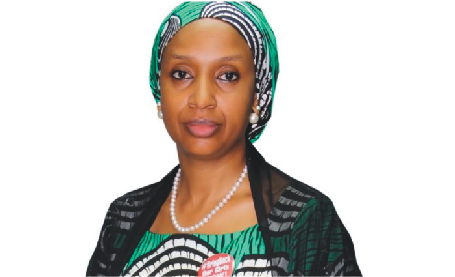
PHOTO CREDIT: NPA/Paul Erakhifu
By Oluwatoyin Amao
Hadiza Bala-Usman has narrated how she clinched the job of Nigerian Ports Authority (NPA) Managing Director, saying “we refuse to allow ourselves to fit into a box”.
Speaking during a panel discussion that centered on “what it means to be a woman in Africa” at an event organised by CNN Africa in partnership
with the British Deputy High Commission in Nigeria in conclusion of the “Women’s Month” celebration, Bala-Usman said she did not allow herself
to be roped into a system that holds women back from reaching out for
top positions in the society.
“We refuse to allow ourselves to fit into a box. There’s a particular narrative that’s around who you are as an African woman — for me as a northern woman — that you’re required to stay in that nice happy box that they’ve put you in, and I refused to do that.
“I wouldn’t stay in that place they put me in and what happened is that I turn out to be the MD of the Nigerian Ports Authority (NPA).
“Where I come from in the north, women are conditioned to think that they’re not meant to be out there. But I’m a woman who will take what’s mine. I serve as an inspiration to young women out there.
“So I encourage all of us-young women, older women to just think of who we are and what we want to achieve and push the boundaries and refuse to be defined by anyone else.”
Usman said she’s still actively part of the Bring Back Our Girls (BBOG) movement, adding that being in government has not restricted her from advocating the release of the Chibok girls.
“Five years later I’m still advocating, I wear my badge. I refuse to be put in that place that says you’re in government you can’t advocate.
“I reserve the right to advocate for a thing I believe in wherever I find myself. So don’t limit yourself to what you’ve been told to do.
“Typically you’re in government, you shouldn’t challenge status quo, you shouldn’t challenge government about what they should do, but for me, the Chibok girls was a passion I had.
“Girls shouldn’t be abducted. I need to remind us that these girls are still in captivity. Let’s remember that in our consciousness,” she said.